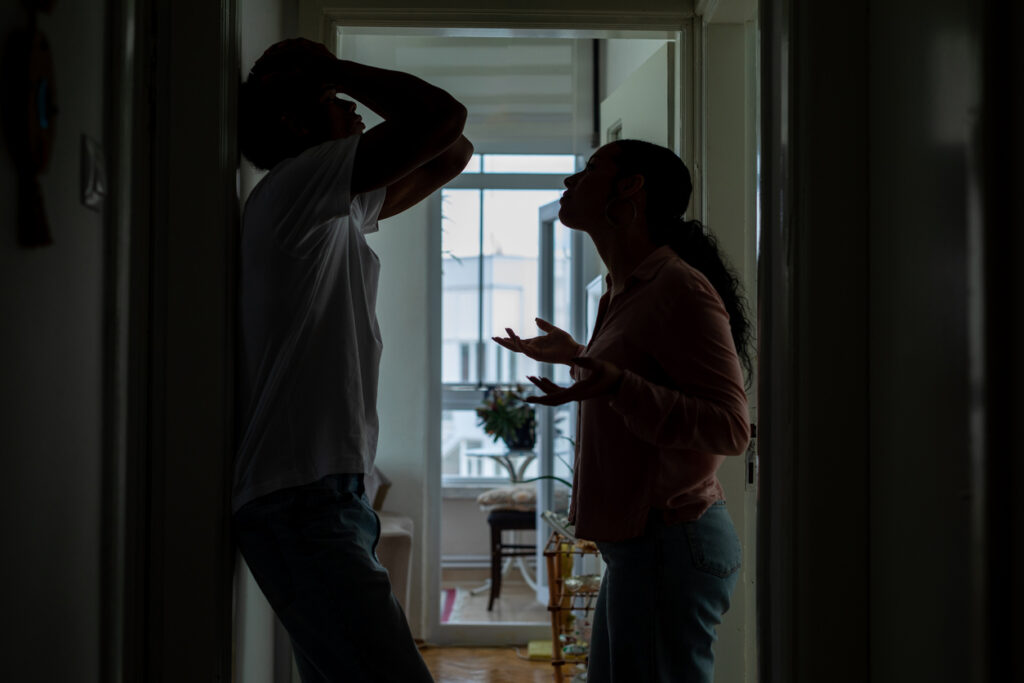Most domestic assaults are committed by males against females, but increasingly, men are also the victims of domestic violence. Anyone in Michigan – male or female – who is a victim of domestic violence should speak right away with a metro Detroit domestic violence attorney.
hat is your legal recourse if you are dealing with domestic violence in the Detroit area? Should you seek to have criminal charges filed? Should you request a personal protection order? How can a family law attorney help? Keep reading, and you’ll learn the answers to these questions.
A number of states have established mandatory arrest laws and other policies that are designed to deter and prevent incidents of domestic violence. Michigan, for example, authorizes police officers to make an arrest without a warrant under some circumstances in domestic assault cases.
A Michigan law enforcement officer who responds to a domestic violence call may make an arrest, without a warrant and without the crime taking place in the officer’s presence, if he or she has reasonable cause to believe that a domestic assault has been or is being committed.
What Constitutes Domestic Assault?
“Domestic violence” includes physical and sexual violence, threats of physical and sexual violence, and emotional or psychological abuse. It may be a single incident or a pattern of behavior involving intimidation or violence by one partner to exert power over the other.

According to the Michigan State Police, more than 55,000 domestic assault arrests were made in this state in 2019. A person commits domestic assault in Michigan by assaulting:
- a current or former spouse, or your child’s other parent
- a current or former dating partner
- a current or former member of the same household
A conviction on a first-offense, domestic assault charge in Michigan may be penalized with up to 93 days in jail and/or a fine of up to $500. If the victim was seriously injured, the conviction may be penalized with up to a year in jail and/or a fine of up to $1,000.
Do Domestic Violence Victims Have Another Option?
Subsequent convictions for domestic assault incur more severe penalties. Thus, if you file a criminal complaint against a domestic abuser, that person could be convicted and serve a jail or prison sentence.
If you become a victim of domestic violence, call the police. Understand, however, that in some cases, no arrest will be made, or the abuser will swiftly make bail and continue to pose a threat. Candidly speaking, a criminal complaint isn’t always the best way to deal with domestic abuse.
Even when the police make an arrest, a prosecutor will look at the evidence and decide to either move forward with the case or to drop the charge. If the evidence is inadequate to ensure a conviction – a “he said, she said” situation, for example – the prosecutor may drop the case.
But even when a domestic assault case goes to trial, guilt still has to be proven beyond a reasonable doubt, and that is not always easy. However, Michigan law offers an alternative to domestic violence victims that doesn’t require filing a criminal charge or winning a conviction.
What is a PPO?
Michigan makes available a personal protection order or PPO, often called a restraining order, and if you’re a domestic violence victim, a metro Detroit family law attorney can probably help you obtain one. A PPO is far less difficult and much faster to obtain than a criminal conviction.
The court will issue a PPO if it finds reasonable cause to believe that the alleged abuser will engage in violence, threats of violence, or emotional abuse. To find reasonable cause, the court will consider testimony and other evidence submitted by the person seeking the protection.

You may ask the court to issue a personal protection order “ex parte,” which means that the alleged abuser will not be notified in advance, if you can show that “immediate and irreparable injury, loss or damage” or “adverse action” will likely occur if advance notice is provided.
Can Stalking Victims Qualify to Request a PPO?
Victims of stalking do not have to have a relationship with the alleged stalker to obtain a PPO, but you must establish a behavior pattern with at least two separate incidents that would cause a reasonable person to feel terrorized, frightened, intimidated, threatened, harassed, or molested.
You should request several extra copies of the personal protection order. Keep a copy with you at all times and a second copy stored safely. You may also need copies for schools, daycare providers, employers, or anyone else – a neighbor or relative, for example – who should know.
Anyone who is found guilty of violating a personal protection order in Michigan may be jailed for up to 93 days and/or fined up to $500.
What Happens After You Receive a PPO?
An alleged abuser has 14 days to request a hearing to challenge a personal protection order. A hearing may also be requested for “good cause” even after the 14 days have passed. That hearing must be held within 14 days after the request has been made.

A personal protection order stays in effect for 182 days. To extend a protection order, your request for a new expiration date must be filed with the court at least three days before the order is due to expire, and the court must act on your request within three days after it has been filed.
How Can the Right Attorney Help You?
If you need a personal protection order, if you need to have that order extended, or if the order is being challenged by your alleged abuser, you must be advised and represented by the right Michigan family law attorney. Your attorney will help you:
- understand PPOs and your other legal options
- guard your safety and your children’s safety
- gather evidence of abuse
- prevent the abuser from contacting you
- represent you if the abuser challenges a personal protection order
- pursue the most permanent solution possible for you and your children

Prosecutors, judges, and law enforcement officers in the Detroit area take domestic violence quite seriously. If you are a domestic violence victim, make the violence stop. Now is the time to discuss your legal rights and options with a metro Detroit domestic violence attorney.












